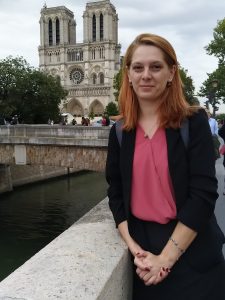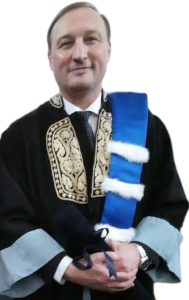Welcome dear reader!
This blog is created to share with you some insights of the research I develop for the project Shadowy faces of diplomacy. An investigation on the lower-ranked agents of the Venetian-Ottoman diplomacy during the Sixteenth century. My name is Dana Caciur, PhD, and I am a scientific researcher and N. Iorga Institute of History of the Romanian Academy. And here you can learn some information about the work I’ve been doing during the last five years.
My PhD thesis, ergo my area of expertise, is dedicated to the history of The Morlachs from Dalmatia during the Fifteenth and Sixteenth centuries and was defended in 2017 at the Faculty of History at the University of Bucharest. The research I developed for the thesis focused on understanding how the Morlachs` identity was constructed during the during the 15th and 16th centuries (the resulted monography will soon be published). This research successfully balanced traditional questions such as: who were the Morlachs? What was their ethnicity? What was their connection with other Vlach communities scattered from South Balkan Peninsula to the Southern Poland? and the types of information available through the newly discovered Venetian documents. These Venetian sources (issued mainly by the Venetian officials, functionaries, etc.) provided a new and interesting approach.
Writing and analysing different case studies I was able to identify a series of features and specific activities that repeat when the Morlachs appear mentioned by the counts, captains, governors, ambassadors or other men of the Venetian empire. Accordingly, the analysis I proposed in my PhD thesis aimed to describe the Morlachs from Dalmatia through the reactions of the authorities to their activities. A resume of my thesis was published in Balcanica Posnaniensia – Ius Valachicum (II), vol 28/1 (2021), while several cases studies and conclusions have already been published in a few articles listed below.
The research I have been developing during my post-doctoral years focuses on the Venetian-Ottoman relations within the border areas in Eastern Adriatic during the 16th century. Outputs of this research direction were a few papers, I presented at different international conferences. A side project I dedicated to a comparative analysis between Venetian Dalmatia and Wallachia in the matter of functionaries that crossed the formal border in order to fulfil the official tasks they were appointed to. This comparative approach with Wallachia, was created within the research grant offered by the Romanian Academy for the project On movement. The Wallachian-Ottoman area of conflict during the 16th century (Oameni în mișcare. Zona de conflict munteano-otomană în secolul al XVI-lea). The main outputs of this project were two articles (soon to be published) dedicated to the Ottoman çavuș-i (ro. ceauș) in Wallachia and to the individuals who carried the correspondence and goods exchanged by Ecaterina Salvaressa (wife of Alexandru II Mircea, the voivode of Walachia) with her sister Maria Adorno Valarga (resident in Venice on Murano Island) during the last decades of the Sixteenth century.
In addition to all these, I am involved in the joint project developed by the Department of Central Europe and Black Sea area from the Nicolae Iorga Institute of History. The project aims to collect, translate in Romanian and publish different key texts written by foreign travellers who have visited the Romanian countries across time. Given my experience with sources in Latin and Italian, alongside my expertise with the Western Balkans I am in charge with the work of travellers from the Italian and Croatian territories. Therefore, the research I develop as part of this project focuses mostly on Catholic missionaries in Moldavia, Wallachia and Transylvania, Ragusan merchants and different Croatian, Dalmatian imperial (Habsburg) agents that spent some time North of the Danube and in Transylvania. The time frame of this project has as an upper limit the 19th century.
Most relevant publications:
Caciur, Dana, The Morlachs of Dalmatia during the 15th and 16th centuries, in Balcanica Posnaniensia – Jus Valachicum (II), vol. 28, nr. 1, 2021, p. 149 – 176.
Caciur, Dana, (In) The Name of the Morlachs: The Memory of an Identity Along the Centuries. Some Working Hypothesis in “Transylvanian Review”, vol. 29, Supliment 2, 2020, p. 19 – 35.
Caciur, Dana, (Re)Searching the Morlachs and the Uskoks: The Challenge of Writing about Marginal People from the Border Region of Dalmatia (Sixteenth Century) in “Cromohs”, vol 23, 2020, p. 28-43.
Caciur, Dana, Migrații spontane și organizate în teritoriul Zarei (Zadar-ului) la mijlocul secolului al XVI-lea. Cazul Morlacilor Istrieni, in “Studii și materiale de istorie medie”, vol. 34, 2016, p. 73-104.
Caciur, Dana, Considerations regarding the Morlachs Migrations from Dalmatia to Istria and the Venetian settlement policy during the 16th century, in “Balcanica Posnaniensia. Acta et Studia”, 2015, p. 54-70.
Caciur, Dana, Considerations regarding the Status of the Morlachs from the Trogir’s Hinterland at the middle of the 16th century: Being subjects of the Ottoman Empire and land tenants of the Venetian Republic, in “Res Historica”, vol. nr. 41, 2016, p. 95-110.
Caciur, Dana, Soluțiile oficialilor venețieni din Dalmația la practicile criminale ale morlacilor în decursul secolului al XVI-lea. Cazul: Milia Popovich/Melia Popović, in “Povestiri Întretăiate. Istoria în cheie minoră”, ed. Ovidiu Cristea, Târgoviște, Cetatea de Scaun, 2016, p. 295-314.
Caciur, Dana, Discussing regional customs. The conflict between Filippo Bragadin and Cussein Potoclia and the Morlachs of Dalmatia in the mid-sixteenth century, in “Reform and Renewal in Medieval East and Central Europe: Politics, Law and Society”, eds. Suzana Miljan et al., Cluj-Napoca, Zagreb, London, 2019, p. 467 – 492.
You can read most of them on https://independent.academia.edu/CaciurSilvia ! 😊
The list is updating! So: stay close!
My mentor in this project if professor Cristian Luca from Lower Danube University of Galaţi (Romania).

Cristian Luca attended the University of Bucharest, where he took a B.A. in Medieval History in 1999, an M.A. in Eastern European Medieval and Early Modern History in 2001 and a Ph.D. degree magna cum laude in Early Modern European History in 2006. He was awarded the «Nicolae Iorga» National Fellowship for Research and Postgraduate Specialization in Venice from 2002 to 2004, and was Andrew W. Mellon Postdoctoral Fellow to the Netherlands Institute for Advanced Study in the Humanities and Social Sciences from September 2008 to February 2009, and was also awarded other grants and stipends for research and specialist training in Italy. Professor of Late Medieval and Early Modern History at the Lower Danube University of Galaţi (Romania), he teaches Late Medieval and Early Modern history of Eastern Europe and the Romanian Principalities. He is currently the Deputy Director of the Romanian Institute of Culture and Humanities Research in Venice (Italy). His research interests include maritime trade in the north–western Black Sea from the sixteenth to the late eighteenth centuries, Western diplomacy and embassy staff in Constantinople during the sixteenth and seventeenth centuries, and the social and economic history of the Romanian Principalities in the Early Modern period. He started publishing in academic journals in the late 1990s on topics researched during a six-month mobility fellowship in Venice supported by the Department of Culture of the Romanian Government and the Open Society Foundation. Influenced by the work of Paolo Preto and Domenico Sella, he spent years in the archives researching Venice’s international relations and involvement in medium- and long-distance trade in Eastern Europe. Much of his work on economic history has also been influenced by Immanuel Wallerstein’s World-System theory as applied to the East European region.
Research Grants:
2012–2015: member of the research team of the Research Project THALES – The Black Sea and its port–cities from the 18th to the 20th century. Development, convergence and linkages with the global economy – Director: Prof. Dr. Gelina Harlaftis (Ionian University of Corfu, Greece) – funded by the National Strategic Reference Framework, which is co-financed by Greece and the European Union;
2009–2011: Director of the IDEI Research Programme – Exploratory Research Project 298: The Contribution of the Ethnic and Religious Minorities to the Improvement of the Foreign Trade of the Romanian Principalities (second half of the 16th–beginning of the 18th centuries), funded by The National Council for Scientific Research in Higher Education – The Executive Agency for Higher Education, Research, Development and Innovation Funding (CNCSIS – UEFISCDI) of the Romanian Government;
2008–2009: member of the research team of the A category Grant ID 1498: A Century of the History of Transylvania (1387–1490). Late Crusade, Society, Humanism, Religious Unification – Director: Prof. Dr. Ioan–Aurel Pop («Babeş–Bolyai» University of Cluj-Napoca) – funded by the National Council for the Scientific Research of the Higher Education/ Romanian Government.
Academic Prizes and Awards:
2009: «Dimitrie Onciul» Academic Award of the Romanian Academy for one of the best academic book (Ţările Române şi Veneţia în secolul al XVII–lea. Din relaţiile politico–diplomatice, comerciale şi culturale ale Ţării Româneşti şi ale Moldovei cu Serenissima, Encyclopaedic Publishing House, Bucharest, 2007, 486 pp.) on Early Modern History topic printed in Romania in 2007;
2008: «Teresa Ferro» Memorial Award of the Italian Cultural Institute at Bucharest for «the value of academic research and the relevance of the book (aforementioned) for a better knowledge of the Italian–Romanian historical relations».
Professional expertise in academic and scholarly research and publishing:
2018–present day and continue: Expert evaluator for The Web of Science Academic Reputation Rankings, in the field of History;
2016–present day and continue: Member of the Commission of History and Cultural Studies of The National Council for Academic Degrees, Diplomas and Certificates of Higher Education (CNATDCU) of The Romanian Ministry of Education and Research;
2014–present day and continue: Expert evaluator for annual Times Higher Education World University Rankings, in the field of History;
Full-text books and articles at the webpage:
http://ugal.academia.edu/CristianLuca